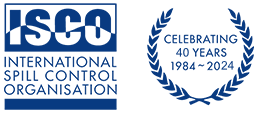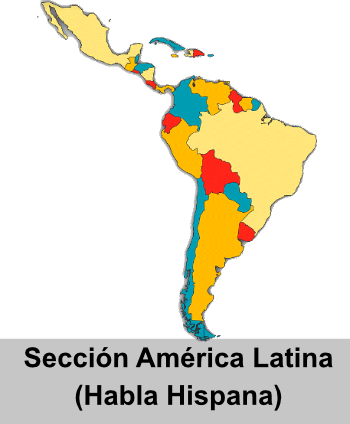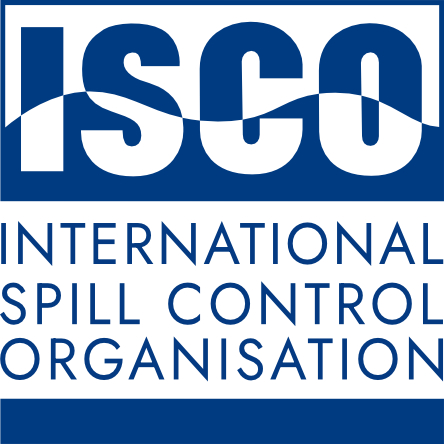ISCO is currently reconsidering the possibility of restarting its effort to foster the creation of international guidelines for decanting settled-out water during oil spill containment-recovery operations.
Back in September 2012 ISCO presented the case for this at the 64th Session of IMO’s Marine Environment Protection Committee.
ISCO’s submission highlighted the problems faced by masters of skimming vessels when prohibited from discharging settled-out water during operations to recover oil spillage.
The hoped-for outcome was that MEPC would recognise the problem and refer the matter back to the OPRC-HNS Technical Group with an instruction to develop guidelines with the aim of making it easier for responders to legally decant settled-out water and thus realise the net environmental benefit of being able to continue oil recovery.
As things stand MARPOL Annex 1, regulation 4, paragraph 3 does allow individual governments to authorise decanting in specific oil spill combating situations but, for numerous reasons, this clause is seldom exercised.
One of these may be an understandable reluctance by member states to accept responsibility for giving a “carte blanche” without agreed safeguards. Nine delegations spoke in response to the ISCO Paper but the general gist was that MARPOL Annex 1 had no Unplanned Output in regard to international shipping, was thus not a candidate for amendment and that the existing provision for member states is adequate. Under this circumstance the matter was not passed back to the Technical Group. However, at the end of the meeting several delegates approached the ISCO representative privately, expressing opinions that the proposal made good sense and recommending that ISCO should reintroduce the matter again at a later time.
For the interest of Members and others, the case that ISCO made can be summarised –
States will not normally permit decanting unless oil content is within the limit permitted in MARPOL Annex 1 which prohibits all discharges of oil at sea if the oil content of an oil-water mixture is in excess of 15ppm. Other provisions totally prohibit oil discharge within 50 nm of the nearest land and within IMO-designated Special Areas. These provisions of MARPOL Annex 1 have a direct and negative bearing on at-sea oil recovery operations.
Unintended consequences – Negative effects on continuity of oil recovery operations
In situations where an oil spill recovery vessel is obliged to cease recovery operations on account of available tank capacity being completely topped up with recovered oil-water mixture, the rules do not allow settled out water to be discharged (to permit continuation of oil recovery) unless oil content is below 15ppm.
The frustration experienced by responders was recently expressed by an internationally respected oil spill response expert – “The rules are meant to cover normal operations and of course we all want to see low discharges into the sea, but there should be a dispensation for spills”. Furthermore a vessel’s master may be prosecuted for not complying with MARPOL requirements.
Historical precedents
Individual states can give, and in some instances have given, exemptions for discharge of separated water containing more than 15ppm of oil in specified situations. For example, limited decanting was permitted during the Exxon Valdez spill where many skimmer vessels were operating at very remote locations and where there were severe logistical problems in arranging for recovered oil-water mixtures to be uplifted from these vessels at frequent intervals.
More recently, during the Deepwater Horizon spill, The US EPA Comprehensive Liquids Waste and Materials Management Plan stipulated “During oil skimming operations, the objective is to collect oil with a minimal amount of water. Decanting operations on water are conducted under the approval and permitting of the incident’s Unified Command. The mix of oil and water that is collected offshore is stored in an appropriate container and the water that settles out is decanted back to sea while the container is still offshore”. Authorisation to decant settled-out water was very important because the response vessels were typically 5 to 7 hours away from port.
In the examples given above the granting of exemptions was possible under the provisions of MARPOL Annex 1 Regulation 4, Paragraph 3 which states “the discharge into the sea of substances containing oil, approved by the Administration, when being used for the purpose of combating specific pollution incidents in order to minimise the damage from pollution. Any such discharge shall be subject to the approval of any Government in whose jurisdiction it is contemplated the discharge will occur”.
One also has also to keep in mind that when a vessel is operating in international waters there could be problems of jurisdiction. In such a case a vessel’s flag state may take action against the master if the discharge is not in compliance with MARPOL requirements. Furthermore this would be more problematical if the area of operation is within a “Special Area”.
However, the granting of an exemption is very much more of an exception than a rule, and may only be applied in specific cases. This means that in most cases an oil spill response organisation (OSRO) would have to make application for an exemption, something that could be difficult to get processed quickly, resulting in unacceptable delay in the midst of a spill combat operation. It also appears that many OSROs and involved government officials have a low awareness of the provision within Regulation 4 and the option available to governments to invoke the relevant clause.
For these reasons it is recommended to make changes that would permit the person locally in charge of skimming operations to make timely decisions and to circumvent delay involved in seeking a special dispensation from the relevant authority.
Consideration of Net Environmental Benefit
In the midst of productive skimming operations it is not uncommon to be faced with the situation where tank capacity on the skimming vessel becomes full. The person in charge has to decide whether to cease recovery or decant settled-out water in order to continue skimming.
The most obvious consideration (apart from the legal aspects) should be based on the application of Net Environmental Benefit Analysis (NEBA).
Under NEBA, the environmental consequences of alternative actions are weighed and a decision is taken to adopt the option that will be the most positive for the protection of the environment.
The most environmentally beneficial choice may be self-evident but, in the absence of a dispensation, the person in charge will, in deciding to decant settled-out water, be breaking the law and may therefore be liable to prosecution.
This is not an acceptable situation. Therefore in such circumstances by applying the NEBA concept, decanting at sea should be allowed as long as the oil content in the mixture being discharged is significantly less than that being recovered. This would save on the frequency that vessels have to proceed to a discharge facility
Other points that should be considered
Firstly, a settled-out oil water mixture will contain only very small droplets of oil. These are comparable to droplets of similar size International news (continued)
that would result from dispersant application, which is a generally accepted oil spill response option. So why worry about such small amounts of oil which will disappear and be finally biodegraded. When the real outcome is the same, it is not logical to accept the use of dispersants as a response option and forbid decanting of settled-out water in a spill situation.
Secondly, when a ship is recovering oil or treating oil with dispersant, oil will adhere to the hull and this will actually cause more oil pollution than that which will result from the decanting of an oil water mixture after gravity separation.
Thirdly, the primary goal should always be to recover as much oil as practicable from the water surface. Concern about the small amount of oil getting back into the marine environment as a result of decanting is misplaced when compared with the consequence that, without decanting, the capacity for oil recovery oil will be much reduced and less oil will be recovered.
ISCO suggested an amendment to Annex 1 recognising that under certain conditions the decanting of settled-out water should be permitted at the discretion of the person in charge. Appropriate conditions could include compliance with new Guidelines created to address the issues, including a requirement to address NEBA considerations. Other recommendations might apply to the need for continuous monitoring of decanting operations, ensuring that settled-out water is discharged into the immediate area of ongoing skimming operations and ensuring that discharge will be immediately ceased upon observation of increased oil content.
Recent technical advances include the development of an automated system for monitoring and control of decanting operations. Oil content of discharged water is continuously monitored. Discharge is automatically stopped if oil content exceeds a pre-set limit and a permanent record of the oil content of the decanted water is created.
If amendment to Annex 1 is accepted by states, existing regulations of states implementing the rules can be modified to reflect the changes relating to decanting settled-out water and the applicable Guidelines. Subject to compliance with the Guidelines, decanting would be automatically allowed if conditions are met and the need for issue of special dispensations will be removed. It would then become possible for states to incorporate the revised rules and new Guidelines for decanting of settled-out water within their national contingency plans.
During last month’s IMO PPR Sub-Committee Meeting the ISCO Secretary briefly discussed decanting with Andrew Nicoll of IPIECA. Andrew mentioned the work done under the Joint Industry Project JIP 17 – Report on the use of decanting during offshore oil spill recovery operations – http://oilspillresponseproject.org/sites/default/files/uploads/JIP-17-Decanting.pdf
JIP 17 is a useful report that endorses the point “The use of decanting is an effective way to deal with recovered water during oil spill operations and has benefits in terms of efficiency and safety (enabling less handling and more time spent recovering oil from the waters’ surface rather than transiting to and from the intermediate waste handling facility)”. Helpful operational advice is included, even a pro forma application that can be used to request approval from national authorities for decanting.
However, the findings of JIP 17 do not negate ISCO recommendations for changes that would create an internationally accepted solution, ensuring that decisions can be made without delay on NEBA considerations by on-scene commanders. No matter where in the world, decanting operations should be conducted in accordance with globally agreed operational procedures and high environmental standards.
Before taking this further ISCO wants to be assured that it will have the approval and support of the response community it represents and you are asked to comment. In discussion with the IMO Secretariat, it has been advised that to achieve MEPC approval for the PPR Sub-Committee to work on the development of Guidelines the support of a reasonable number of Nation States will be necessary. Representatives of Nation States at IMO are therefore invited to advise their interest. All communications should be sent to the ISCO Secretary at [email protected]





